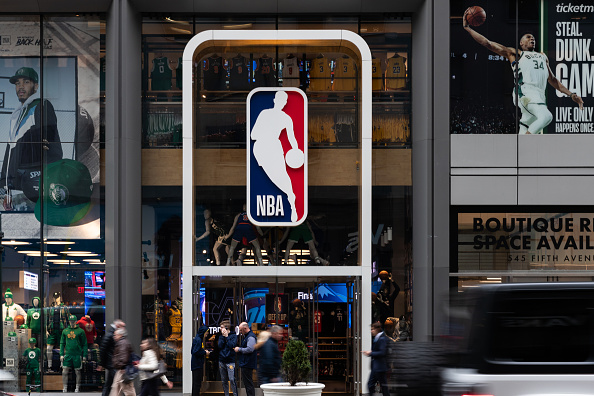Last week, the NBA and the NBA Players Association came to a new Collective Bargaining Agreement (CBA) for the next seven years. This was a big deal because many people believed that there was going to be a lockout after the current one was going to expire after the next season. There was a ton discussed and agreed upon in this new deal. One of the new agreements was the new format for NBA Awards.
Traditionally, the All-NBA format is simple. There are three teams (1st, 2nd, and 3rd), each with two guards, two forwards, and a center. There was also no game requirement. In the new format next year, there will still be three teams, but the teams will be positionless, and each player must play at least 65 games. This is for every NBA Award, and not just All NBA Teams. Here are my opinions on these changes.
65 Game Requirement
This new rule was implemented mainly because it addresses “load management”. I love this decision. Even though some might see it as unfair because players cannot control whether or not they get injured. That said, NBA Awards are meant to go to players who played the best that year. And to be the best of the best compared to other guys, you need to play most of the games.
It should not be a thing where players are getting awards when they have only played less than 60 games. Some people think that 65 games are a little too much, but in reality, if you miss 17 games, you are still eligible. That should be PLENTY of games to miss while still being awarded if you play at an All-NBA level.
The last concern people keep bringing up is that the awards will no longer consist of the best players. On his podcast, Draymond Green said, “Everyone will appreciate this until you got bums on the All-NBA team”. This is an insane take because Draymond always talks about how there is more talent in today’s game than ever. But, no matter what, there will not be any “bums” on the All-NBA team. It is hard enough to get into the league and even harder to play at an All-NBA level for more than 65 games in a season.
Positionless All NBA Teams
This part of the award change was probably more popular than the 65-game requirement. It is a great thing that voters will no longer have to decide between Nikola Jokic and Joel Embiid on who should be on the All-NBA First Team. The fact of the matter is if you finish Top 2 in MVP voting, you should be on the All-NBA First Team. With all this being said, I do not believe they should have gone positionless altogether. Whether people believe it or not, positions still matter.
While they are not as set in stone as they used to be, you cannot build a starting five with five guards and five centers, and you probably will not be successful with four guards and a forward. While I am probably in the minority, I still think there should be SOME positions in the mix of these awards. Here is how I think the format should have been:
Guard
Guard
Forward/Center
ForwardCenter
Any Position
If the All NBA Awards were set up like this, it would be a perfect balance. They would still value positions, and the best players would still most likely be on the All NBA Teams would still consist of all the best players. With this also being said, the positionless system is far better than the one that has been in place for all these years now.
Conclusion
Load management and the best players not getting true recognition for awards have become a big problem in today’s game. The NBA did a fantastic job addressing these concerns, even if they did not solve every issue.
Main Image Credit:
Embed from Getty Images




